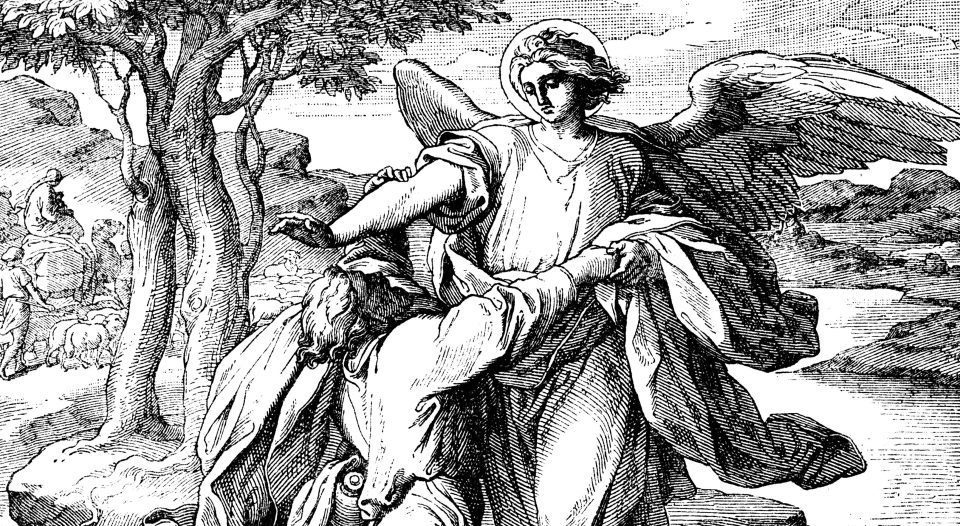Lectionary for Oct 16, 2022
19th Sunday after Pentecost
Genesis 32:22-31; Psalm 121;
2 Timothy 3:14–4:5; Luke 18:1-8
To put it mildly, the life of faith isn’t easy.
Sophie Scholl was arrested and executed for obeying God’s call for her to resist fascism in the 1940s by joining the White Rose movement and pointing out a better way of life. Katharina Von Bora was smuggled out of her convent among herring barrels, and then endured a difficult life as an outlaw’s wife. She provided meals (and beer!) for hundreds of guests at the Black Cloister, and almost singlehandedly ran and improved the estate as a home base for the Reformation movement — despite wars, plagues and bad harvests. Mary Magdalene traveled with Jesus, supported him financially, observed his murder at the hands of the Romans and witnessed his resurrection. She was one of the first apostles to tell of the risen Lord (John 20:11-18), only to be discounted by Jesus’ own disciples (Luke 24:9-11).
No, the life of faith isn’t easy. Instead, it is a long faithfulness of wrestling with God and with humans. In this week’s lectionary, we have two stories of faithful wrestling with God.
In a much-interpreted section of Genesis, Jacob wrestles with a strange being that is at once a man (32:24) and recognized as God (32:28, 30). But what was the context of this scene? Jacob had fled from his brother’s murderous rage 20 years prior and from his evil, trickster father-in-law a few days earlier (31:1-16). He was on the run and afraid. Jacob knew he was about to meet his brother, but he didn’t know if Esau still wanted to kill him. Still, Jacob obeyed God’s order to return to the land (31:3), just as he had obeyed his mother’s order to attain his blessing decades earlier (27:5-10). While he was faithful to what he had been told, it often put him at odds with men in his family. Fearing Esau, Jacob sent his flocks, herds, 15-member family and numerous servants ahead of him so that no one else would be harmed.
Jacob’s life was long and difficult, yet he continued in his long wrestling match with God and with humans.
As Jacob slept alone on the far side of the Jabbok, he must have been wondering what all this faithfulness had gotten him. And at just that time, a man[ish person] attacked and wrestled with him. This dustup (the Hebrew word we translate as “wrestle” here could more accurately be rendered as “made dirty” or “ground into the dust”) lasted all night. As Jacob was repeatedly pushed down into the ground, he refused to give up, even after his “soft parts” (the word we translate as “hip” could mean anything in the pelvis and upper thigh region) were dislocated. He had a very uncomfortable night, to be sure, yet Jacob hung on to his mysterious adversary until he received a blessing. His name was changed to Israel, because he contended/wrestled with God and with humans and won (32:31)! Jacob’s life was long and difficult, yet he continued in his long wrestling match with God and with humans.
Years later, Jesus told a parable to encourage his followers to be as persistent as Jacob in their wrestling with God through prayer. He told of a widow who wanted justice (Luke 18:3) and the evil judge who intentionally denied her request (5). Nevertheless, the widow didn’t stop demanding justice from the evil judge, who eventually relented and stopped supporting wickedness. The widow wrestled with a corrupt legal system and a judge intent on blocking her rights over the one who opposed her. She kept wrestling with humans, even from a position of low societal empowerment and without anyone to advocate for her in her widowhood. Eventually she won.
If evil judges can be convinced to provide justice through constant pressure, how much more readily will God grant justice to those who ask (7)? Indeed, the problem, Jesus says, is not that God doesn’t wish to grant justice on earth immediately, but whether there are any faithful people on the earth who truly want justice (8). Jesus wants people to wrestle with God and with humans. Not in any martial way, I believe, but to pursue and demand justice and never give up.
The life of faith certainly isn’t easy. Instead, it’s a long, uncomfortable wrestling match. The good news is, God is our supporter. When we faithfully wrestle for justice, God wants us to win.





